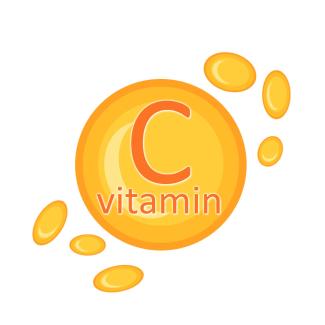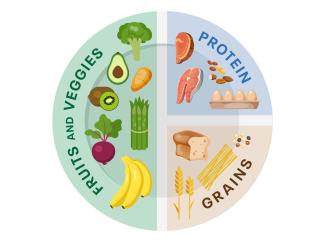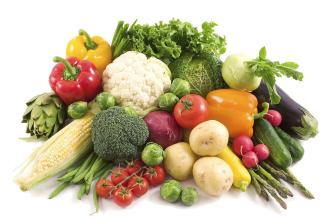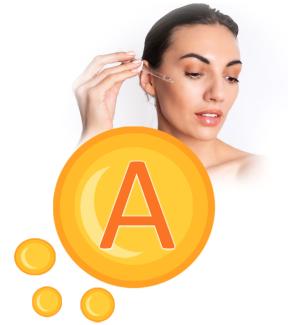
Vitamins play an essential role in maintaining overall health, and they are particularly important for the strength and appearance of our nails. Healthy nails are not only a reflection of good grooming but are also indicative of our body’s nutritional status. Deficiencies in certain vitamins can lead to brittle, weak, or discolored nails. Understanding the role that different vitamins play in nail health and how to effectively incorporate them into your diet and routine can significantly improve the condition of your nails.
This detailed guide will explore the most important vitamins for nail health, explain how they contribute to stronger, healthier nails, and provide practical tips for ensuring you get enough of them.
The Importance of Vitamins for Nail Health
Nails are made primarily of a protein called keratin, which gives them their strength and structure. To maintain the growth and quality of nails, the body requires a constant supply of essential nutrients. Vitamins, along with minerals and other micronutrients, help in promoting keratin production, improving nail resilience, and ensuring that nails remain smooth, strong, and free of irregularities.
1. Biotin (Vitamin B7)
Biotin, also known as vitamin B7 or vitamin H, is arguably the most critical vitamin for nail health. Biotin is a water-soluble vitamin that plays a significant role in converting food into energy and is vital for the health of hair, skin, and nails.
- How it Helps: Biotin boosts the production of keratin, the protein that forms the structure of nails, making them stronger and less likely to become brittle. Studies have shown that biotin supplementation can lead to increased nail thickness and reduce splitting and breaking.
- Sources of Biotin: Biotin is found in various foods, including:
- Eggs (especially the yolk)
- Nuts and seeds (such as almonds, peanuts, and sunflower seeds)
- Legumes (like lentils, beans, and peas)
- Whole grains
- Bananas
- Mushrooms
- Cauliflower
- Recommended Daily Intake: The recommended daily intake of biotin for adults is around 30-100 mcg. For those with brittle or weak nails, higher doses of biotin supplements (up to 2.5 mg) may be beneficial, but it’s always best to consult a healthcare professional before beginning any supplementation.
- How to Use Biotin: You can incorporate biotin into your diet by consuming biotin-rich foods or by taking biotin supplements if necessary. It’s also commonly included in multivitamins or hair, skin, and nail supplements.
2. Vitamin A
Vitamin A is essential for cell growth, which is crucial for the growth and repair of nails. It also plays an important role in the production of keratin, helping to keep nails strong and resilient.
- How it Helps: Vitamin A acts as an antioxidant, which means it helps combat oxidative stress caused by free radicals. Oxidative stress can lead to damage in nail cells, leading to weak, brittle nails. Vitamin A ensures that nails grow in a healthy environment, encouraging smooth, strong nails.
- Sources of Vitamin A: Vitamin A is found in two forms: retinoids (from animal products) and carotenoids (from plant sources). Foods rich in vitamin A include:
- Sweet potatoes
- Carrots
- Spinach
- Kale
- Mangoes
- Eggs
- Dairy products (milk, cheese, butter)
- Recommended Daily Intake: The recommended daily intake of vitamin A for adults is 700 mcg for women and 900 mcg for men. Be cautious with vitamin A supplements, as too much can be toxic. It’s safer to get this vitamin from food sources.
- How to Use Vitamin A: Eating a diet rich in colorful fruits and vegetables will help you maintain adequate vitamin A levels. If you decide to use a supplement, ensure that it does not exceed the recommended daily intake unless advised by a healthcare provider.
3. Vitamin C
Vitamin C is crucial for collagen production, which is a key structural component of nails. It strengthens the connective tissues around nails, supports nail growth, and protects against damage from oxidative stress.
- How it Helps: As an antioxidant, vitamin C helps to protect nail cells from free radical damage. Vitamin C also aids in the synthesis of collagen, a protein that is vital for the strength and integrity of nails, skin, and hair. Without enough vitamin C, nails can become weak and grow more slowly.
- Sources of Vitamin C: Foods rich in vitamin C include:
- Citrus fruits (oranges, lemons, grapefruits)
- Strawberries
- Kiwi
- Bell peppers
- Broccoli
- Brussels sprouts
- Tomatoes
- Recommended Daily Intake: The recommended daily intake of vitamin C for adults is 75 mg for women and 90 mg for men. Smokers may require more vitamin C, as smoking depletes vitamin C levels in the body.
- How to Use Vitamin C: Ensure that you consume plenty of fresh fruits and vegetables daily to meet your vitamin C needs. Vitamin C supplements are also available if dietary intake is insufficient, but a well-balanced diet is the best way to get the necessary amount of this vitamin.
4. Vitamin E
Vitamin E is another powerful antioxidant that protects nails from oxidative damage. It also helps to maintain moisture in the nails and cuticles, preventing dryness and brittleness.
- How it Helps: Vitamin E’s moisturizing properties are beneficial for nails that are prone to cracking or peeling. It also improves blood circulation, which is crucial for nail growth, and can be applied topically to nourish the cuticles and nail bed.
- Sources of Vitamin E: Foods rich in vitamin E include:
- Almonds
- Sunflower seeds
- Spinach
- Avocados
- Peanuts
- Olive oil
- Hazelnuts
- Recommended Daily Intake: The recommended daily intake of vitamin E for adults is 15 mg. Most people can meet their vitamin E needs through a balanced diet.
- How to Use Vitamin E: In addition to consuming vitamin E-rich foods, you can apply vitamin E oil directly to your nails and cuticles to keep them hydrated and healthy. This can be particularly beneficial during dry, cold weather or if you frequently wash your hands, as moisture loss can weaken nails.
5. Vitamin D
Vitamin D is essential for the absorption of calcium, which plays a crucial role in maintaining the structural integrity of nails. A deficiency in vitamin D can lead to brittle nails and slow growth.
- How it Helps: By regulating calcium levels, vitamin D ensures that nails grow strong and healthy. Without sufficient vitamin D, nails may become soft, brittle, and prone to splitting.
- Sources of Vitamin D: Vitamin D is often called the "sunshine vitamin" because our bodies can produce it when exposed to sunlight. However, food sources include:
- Fatty fish (salmon, mackerel)
- Fortified milk and dairy products
- Egg yolks
- Mushrooms
- Recommended Daily Intake: The recommended daily intake of vitamin D for adults is 600-800 IU (International Units), depending on age and lifestyle. Vitamin D deficiencies are common in people who live in areas with limited sunlight or who spend a lot of time indoors.
- How to Use Vitamin D: Regular sun exposure is the best way to maintain healthy vitamin D levels, but supplements are often necessary, especially during winter months or if you live in a region with limited sunlight.
6. Folic Acid (Vitamin B9)
Folic acid, also known as vitamin B9, plays a key role in cell production and tissue growth, making it essential for nail health. It promotes the growth of strong, healthy nails by supporting the production of new cells.
- How it Helps: Folic acid ensures that nails grow evenly and remain smooth. A deficiency in folic acid can cause nails to become brittle or develop ridges.
- Sources of Folic Acid: Folic acid is found in:
- Dark leafy greens (spinach, kale)
- Beans and legumes
- Whole grains
- Fortified cereals
- Oranges and other citrus fruits
- Recommended Daily Intake: The recommended daily intake of folic acid for adults is 400 mcg. Pregnant women may require more to support fetal development.
- How to Use Folic Acid: To ensure adequate intake of folic acid, include plenty of green leafy vegetables, legumes, and whole grains in your diet. If necessary, folic acid supplements can be taken to meet daily needs, particularly for individuals with certain medical conditions or dietary restrictions.
Using Vitamins for Healthier Nails
Incorporating the right vitamins into your diet is a crucial step toward achieving healthier, stronger nails. Biotin, vitamin A, vitamin C, vitamin E, vitamin D, and folic acid all play significant roles in maintaining nail integrity and preventing common issues such as brittleness, splitting, and slow growth.
To ensure you’re getting enough of these vital nutrients, focus on a balanced diet rich in fruits, vegetables, whole grains, and healthy fats. Supplements can also be beneficial, particularly if you have specific deficiencies or dietary restrictions.
Regular nail care, combined with proper nutrition, will promote strong, beautiful nails and enhance your overall appearance and well-being.
Why are healthy nails important?
Healthy nails are important for several reasons, both in terms of personal well-being and as indicators of overall health. Here's why maintaining healthy nails is essential:
1. Indicators of General Health
Nails can reveal a lot about your internal health. Changes in nail color, texture, or strength can sometimes signal underlying health issues. For example:
- Pale nails might indicate anemia.
- Yellow nails can suggest fungal infections or issues with the liver, lungs, or diabetes.
- Brittle nails may be a sign of vitamin deficiencies or thyroid problems.
- Spoon-shaped nails can be a sign of iron deficiency.
By paying attention to the condition of your nails, you can detect early signs of health problems that may require medical attention.
2. Protection for Fingers and Toes
Nails serve a protective role. They shield the sensitive tissues of your fingers and toes from trauma or injury. Without strong nails, the nail beds and surrounding skin would be more vulnerable to infections, cuts, and other forms of damage.
3. Enhancing Dexterity
Nails help you perform everyday tasks with precision, such as picking up small objects, scratching an itch, or untangling knots. Healthy nails that are strong and resilient allow you to complete these tasks more easily without discomfort.
4. Aesthetic Appeal
Healthy nails contribute to your overall appearance and can enhance self-confidence. Well-maintained nails are often seen as a sign of good grooming, professionalism, and self-care. They can complement your personal style and make a positive impression in social and professional settings.
5. Prevention of Nail Disorders
Regular care and attention to nail health can help prevent common nail disorders such as:
- Fungal infections (which can cause yellow, brittle nails)
- Ingrown nails (where nails grow into the skin, causing pain and infection)
- Hangnails (small tears in the skin around the nail) By keeping your nails clean, trimmed, and nourished, you reduce the risk of these painful and unsightly conditions.
6. Confidence and Hygiene
Healthy nails are a reflection of good hygiene practices. Clean and well-kept nails signal that you take care of your body and are mindful of personal cleanliness. On the flip side, unhealthy nails can cause embarrassment and affect your self-esteem, especially in social interactions.
7. Maintaining Comfortable Functionality
Nails protect your fingertips from excessive pressure and friction. Healthy nails prevent pain or discomfort during activities like typing, gripping, or handling objects. Damaged or weak nails can be prone to tearing or breaking, leading to soreness or irritation.
Maintaining healthy nails is about more than just aesthetics. Healthy nails serve functional, protective, and diagnostic roles. By taking care of your nails through proper grooming, nutrition, and paying attention to their condition, you contribute to your overall health and well-being.
What else can I do for healthier nails?
In addition to maintaining a balanced diet rich in essential vitamins and minerals, there are several practical steps you can take to keep your nails healthy and strong. Here’s what you can do for healthier nails:
1. Keep Your Nails Clean and Dry
- Regular Cleaning: Wash your hands and nails frequently, especially after being outdoors or after handling items that can harbor dirt or germs. Clean nails reduce the risk of infections.
- Drying: Always dry your nails thoroughly after washing. Prolonged moisture can cause nails to become soft and prone to breakage or fungal infections.
2. Moisturize Your Nails and Cuticles
- Hydration: Just like your skin, nails need moisture. Use a rich hand cream or cuticle oil, focusing on the nails and cuticles to prevent dryness and brittleness.
- Cuticle Care: Gently massage cuticle oil into your cuticles. This keeps them soft and prevents cracking, which can lead to infections and inflammation.
3. Trim and File Regularly
- Trim Properly: Use sharp manicure scissors or clippers to trim your nails regularly. Cutting your nails in a straight line and rounding the edges slightly will prevent snagging or breaking.
- File Gently: Use a fine-grit nail file to shape your nails and smooth out rough edges. Avoid aggressive back-and-forth filing, which can weaken the nail structure; instead, file in one direction.
4. Use a Nail Strengthener
- Strengthening Products: There are numerous nail strengtheners available that can help protect brittle nails. Look for ones containing keratin, biotin, or other strengthening ingredients that enhance nail resilience.
- Avoid Harmful Chemicals: Be cautious with products that contain harsh chemicals like formaldehyde, toluene, or DBP, as they can weaken your nails over time. Opt for "3-free," "5-free," or "10-free" nail polishes that omit harmful ingredients.
5. Protect Your Nails
- Wear Gloves: When doing household chores like washing dishes or gardening, wear protective gloves to shield your nails from chemicals, water, and dirt. Excessive exposure to water or harsh cleaning agents can cause nails to dry out and become brittle.
- Avoid Using Nails as Tools: Resist the urge to use your nails to open cans, scrape off stickers, or pry things apart. These actions can lead to broken or weakened nails.
6. Give Your Nails a Break from Polish
- Polish-Free Periods: While nail polish can look beautiful, giving your nails time to breathe can help restore their natural strength. Continuous use of nail polish and removers (especially acetone-based) can weaken the nails over time.
- Use Gentle Removers: If you use nail polish, opt for non-acetone removers, which are less drying to your nails.
7. Be Mindful of Manicures
- Professional Care: If you get manicures, make sure your salon follows proper sanitation practices to avoid infections. Tools should be sterilized, and nail technicians should be gentle with your nails and cuticles.
- Limit Acrylics and Gels: Frequent use of acrylic nails or gel polish can weaken natural nails due to the harsh chemicals and UV light used in the process. Try to limit these treatments or alternate them with natural nail care.
8. Avoid Biting or Picking at Nails
- Nail Biting: Biting your nails can cause damage to the nail bed, and the introduction of bacteria from your mouth can lead to infections.
- Picking at Cuticles: This can result in small cuts or tears, which may invite infections. Instead, keep cuticles moisturized and push them back gently with a cuticle stick.
9. Eat a Nail-Friendly Diet
- Biotin-Rich Foods: Biotin is one of the most important vitamins for nail health. Foods rich in biotin include eggs, almonds, spinach, and sweet potatoes.
- Iron-Rich Foods: An iron deficiency can lead to brittle or spoon-shaped nails. Eat iron-rich foods such as spinach, lentils, red meat, and beans.
- Omega-3 Fatty Acids: Omega-3s found in foods like salmon, flaxseeds, and walnuts can keep your nails hydrated and healthy.
- Zinc and Magnesium: These minerals support nail growth and strength. Incorporate zinc-rich foods like chickpeas and pumpkin seeds and magnesium-rich foods like whole grains and leafy greens.
10. Consider Supplements for Nail Health
If your diet is lacking in certain nutrients, you can take supplements designed to improve nail health:
- Biotin (Vitamin B7): Supports strong and healthy nails. It’s often recommended for people with brittle nails.
- Vitamin E: Helps repair damaged nails and promotes hydration.
- Zinc and Iron: These minerals help to prevent thin and brittle nails and support healthy growth.
11. Stay Hydrated
- Water Intake: Drink plenty of water throughout the day to keep your nails and skin hydrated. Dehydration can lead to dry and brittle nails, making them more susceptible to damage.
12. Limit Exposure to Harsh Environments
- Cold Weather: Cold and dry weather can make nails more brittle. In winter, protect your hands by wearing gloves, and apply hand cream regularly.
- Chemicals: Minimize exposure to harsh chemicals like cleaning products, alcohol-based hand sanitizers, and disinfectants, which can strip moisture from your nails.
13. Exercise Regularly
- Blood Circulation: Regular physical activity helps improve blood circulation, which ensures that essential nutrients reach your nails. This promotes healthy growth and stronger nails.
For healthier nails, it's important to take a holistic approach that includes proper care, protection, nutrition, and mindful habits. Regularly moisturizing, trimming, and protecting your nails, combined with a balanced diet rich in essential vitamins and minerals, will promote strong, resilient nails that are less prone to breakage and infections. By incorporating these steps into your routine, you can enjoy long-lasting nail health and strength.






